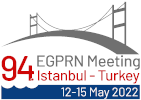Motivational Interviewing for alcohol abuse - a systematic review
Carla Dietrich, Rosemarie Schwenker, Susanne Unverzagt
Keywords: Motivational Interviewing; Alcohol; Systematic Review
Background:
Motivational Interviewing (MI) is a widely used intervention in the field of addiction treatment with the aim of building a person’s intrinsic motivation and commitment to behaviour change. It is a versatile intervention that has been implemented differently in various clinical settings in nearly four decades and is challenging in terms of assessing its effectiveness. The present work was developed within the context of updating the Cochrane review ‘Motivational interviewing for substance abuse’ by Smedslund et al., 2011 and focuses exclusively on alcohol.
Research questions:
To assess the effectiveness of MI for risky drinking behaviour, alcohol abuse or dependence in relation to substance use and readiness to change.
Method:
A systematic search of five electronic databases and a registry was conducted for randomized controlled trials published from 2010 to 2021. RCTs in which people with risky drinking behavior, alcohol abuse or dependence of any age received MI in an individual session were included. The control group received either no intervention, treatment as usual or another active intervention without MI.
Results:
3451 references were identified through database searching. After removal of duplicates, the title and abstracts of 1664 studies were screened. Of these, 227 were included for full-text review. 21 studies were extracted for the alcohol specific review. At the EGPRN conference, we will provide an overview of the study population characteristics and the results for specific alcohol outcomes and different subgroups. We will discuss potential biases, strengths and limitations of the review.
Conclusions:
The aim of our systematic review is to update the evidence base and to assess the effectiveness of MI in relation to problematic alcohol use. Knowledge of treatment options for patients with alcohol-related disorders helps to integrate their therapy more successfully into daily practice routines and to take it into account while optimizing the organisation of primary care practices.
Points for discussion:
Limitations of operationalizing psychological interventions in clinical research and how to overcome them.
What has been your experience with use of MI to treat patients with alcohol related problems in general practice?

